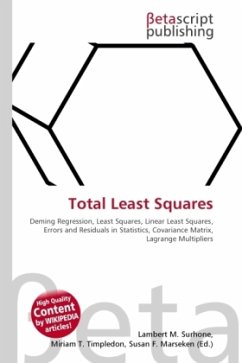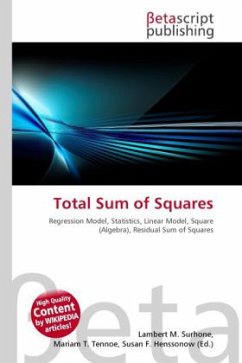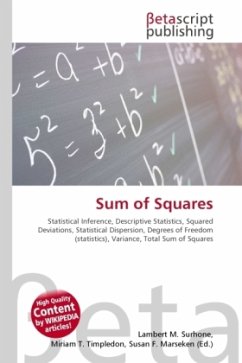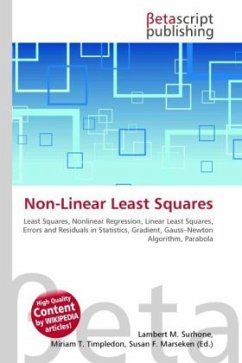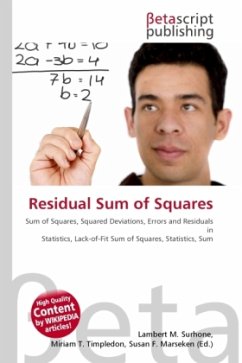High Quality Content by WIKIPEDIA articles! Total least squares, also known as errors in variables, rigorous least squares, or orthogonal regression, is a least squares data modeling technique in which observational errors on both dependent and independent variables are taken into account. It is a generalization of Deming regression, and can be applied to both linear and non-linear models. In the least squares method of data modeling, the objective function, S, S=mathbf{r^TWr} is minimized. In linear least squares the model is defined as a linear combination of parameters, boldsymbolbeta, so the residuals are given by mathbf{r=y-Xboldsymbolbeta} There are m observations in y and n parameters in ? with mn. X is a m×n matrix whose elements are either constants or functions of the independent variables, x. The weight matrix, W, is, ideally, the inverse of the variance-covariance matrix, mathbf M_y, of the observations, y. The independent variables are assumed to be error-free. The parameter estimates are found by setting the gradient equations to zero, which results in the normal equations mathbf{X^TWXboldsymbolbeta=X^T Wy}
Bitte wählen Sie Ihr Anliegen aus.
Rechnungen
Retourenschein anfordern
Bestellstatus
Storno

